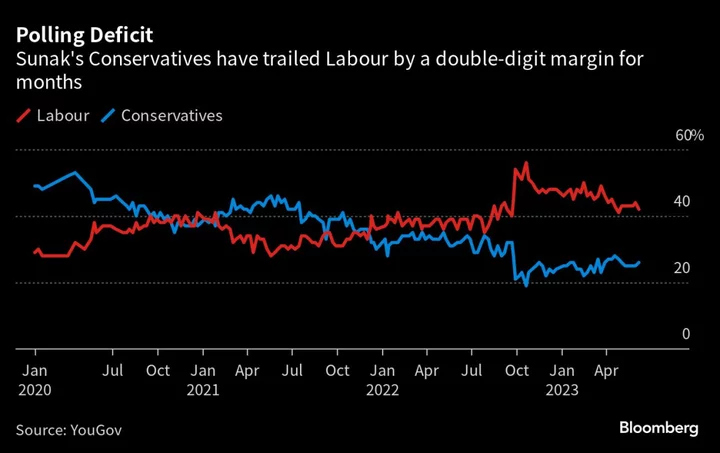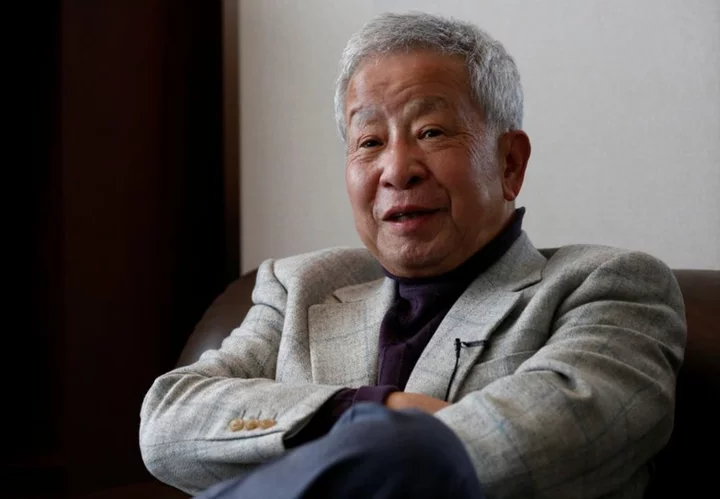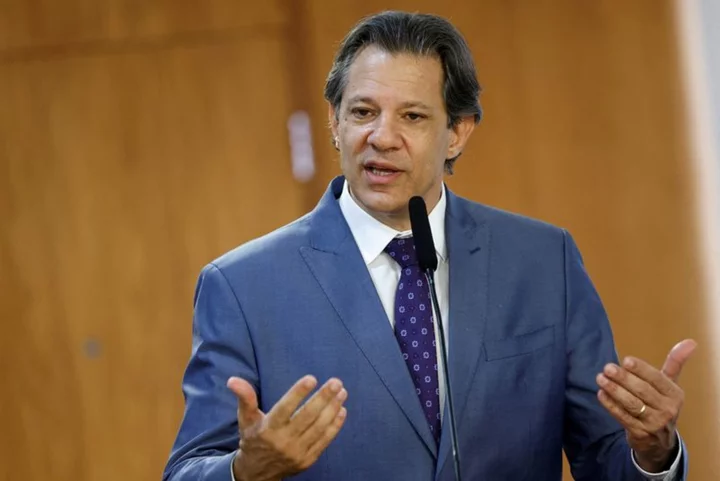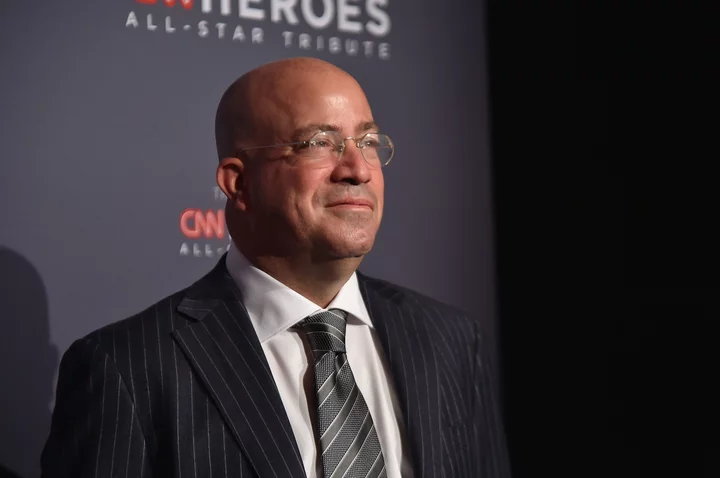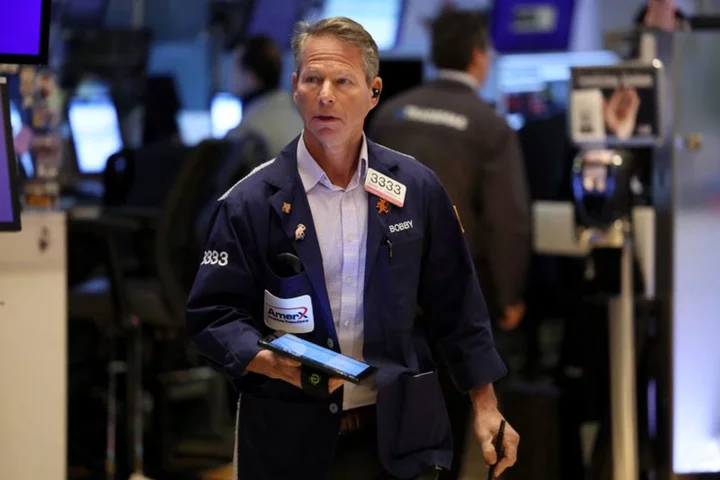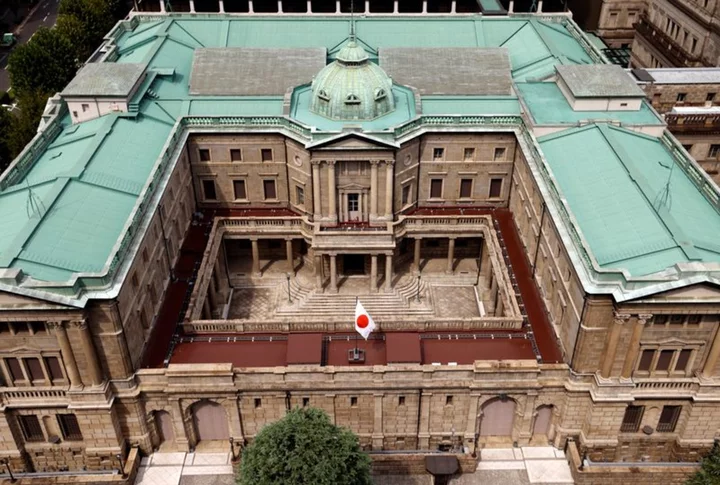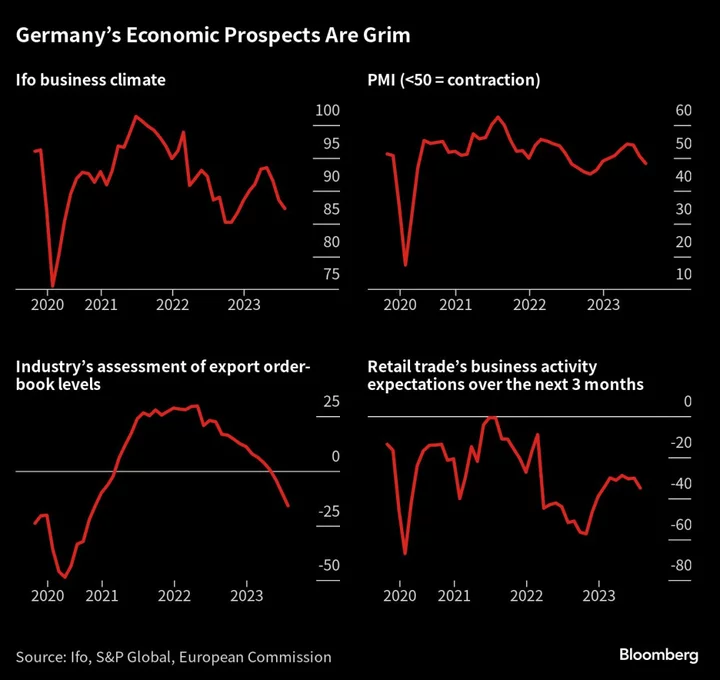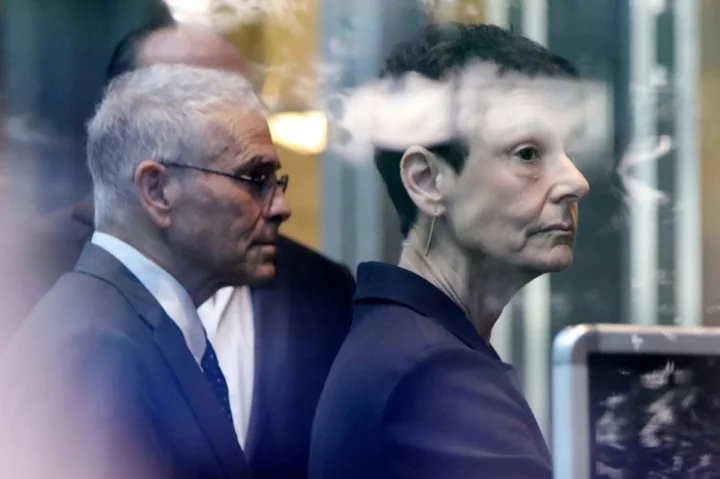Prime Minister Rishi Sunak faces mounting pressure from members of his Conservative Party to help Britons struggling with surging mortgage costs, amid fears that the UK’s sticky inflation and skyrocketing interest rates will cost them their seats in the next general election.
Data published Wednesday showed the government is struggling to deliver on its promise to halve inflation this year, with a core measure actually rising in May from a month earlier. That spurred a flurry of market bets that the Bank of England will be forced to raise interest rates to near 6%, driving up the cost of mortgage repayments and exacerbating the cost-of-living crisis.
The bleak numbers illustrate how all is not going to plan for both Sunak and his Chancellor of the Exchequer Jeremy Hunt, whose authority in the governing party hinges on getting the Tories into position to campaign on their economic record as they try to hold onto power in a vote expected in 2024.
Read More: UK Inflation Overshoots Again, Boosting Pressure on Rates
That looks increasingly unlikely, and with the opposition Labour Party again building a formidable lead in opinion polls, there are signs Conservative MPs are starting to fear an electoral whitewash without drastic action. People familiar with the matter said ministers are being lobbied to introduce a range of measures, from government guarantees for mortgage holders to reintroducing a long-defunct tax relief on interest payments.
“We are going to have to do something as a government to help people out,” Tory MP and former party chairman Jake Berry told Times Radio on Wednesday. “We cannot see mass evictions and people unable to feed their kids.”
The comment from Berry, one of a Conservative faction of MPs in northern England who are especially vulnerable to Labour’s resurgence, illustrates how voters’ expectations have changed since the pandemic. As chancellor at the time, Sunak played a major part in that.
Several Conservatives said privately that Sunak’s furlough program, as well as subsequent support with energy bills, have changed the relationship between the government and citizens, and voters expect the government to intervene.
Berry suggested reintroducing the MIRAS program, a tax relief on mortgage interest payments that ended in 2000. He said people on higher salaries, second-home owners and buy-to-let mortgage holders should be excluded. Sunak’s spokesman, Max Blain, ruled out the proposal on Wednesday.
Read More: Britain Faces Recession and Flood of Job Losses If Rates Hit 6%
Another Conservative MP said privately that a call from Labour’s former finance spokesman, John McDonnell, for a windfall tax on banks to fund targeted support for mortgage-holders is gaining political traction.
The major challenge for Sunak is that such proposals run counter to his pledge to halve inflation. Despite Wednesday’s data, the prime minister told Parliament that target is “on track.”
“Inflation is what’s driving interest rates up, inflation is what erodes people’s savings, pushes up prices and ultimately makes them poorer,” Sunak said in the House of Commons. On Tuesday, Hunt rebuffed calls to offer financial support to mortgage holders, saying that would involve injecting “large amounts of cash into the economy” and would therefore be inflationary.
But the nexus of inflation, interest rates, mortgage costs has clearly put Sunak and his team on the back foot, and opened the door to attacks from Labour. On Wednesday, opposition leader Keir Starmer repeatedly referred to the “Tory mortgage penalty,” a phrase that refers to the current surge in costs but also the chaos of Liz Truss’s short-lived administration last year.
Labour later called on the government to force lenders to help borrowers, including by lengthening the term of a mortgage — but the party stopped short of demanding direct financial support for home-owners. The Conservatives said banks were already required to engage with customers who are struggling to pay their bills.
Sunak will tell an event in southeast England on Thursday that his “number one priority” is to halve inflation this year and get back to the target of 2%, according to a draft of his speech briefed by his office. “And I’m completely confident that if we hold our nerve, we can do so,” he will say.
Read More: Hunt to Meet UK Banks But Rejects ‘Inflationary’ Mortgage Help
Hunt will meet banks and mortgage providers on Friday to discuss the impact of rising interest rates on borrowers, though the focus is expected to be on ensuring banks are meeting their commitments on supporting people who run into difficulty on their repayments.
On Wednesday, he also met consumer finance champion Martin Lewis, who ministers regard as being a key voice in shaping public opinion.
There are no easy solutions for Hunt and Sunak, according to Helen Thomas, CEO of BlondeMoney, a macroeconomic consultancy and a former adviser to ex-Chancellor George Osborne. “Voters now say, ‘You helped us before, so why not this time?’ You’re going against a prevailing opinion within the public.”
Read More: Ex-UK Chancellor Osborne Denies Austerity Hit Covid-19 Planning
Thomas also said that higher inflation and higher interest rates are often negative for the incumbent party, and that the idea that the government caused the UK’s current economic problems is “already set in a lot of voters’ minds.”
With some economists predicting it will require a recession to finally tame UK inflation, the electoral outlook looks increasingly bleak for the Tories.
It’s not even clear that Sunak would get a boost from voters if he does meet his key economic pledge. According to a Survation survey of 2,005 adults published Wednesday, a majority of respondents thought halving inflation this year would mean prices will be the same or less than they are now — setting them up for a disappointment when prices still rise.
(Updates with comments from Labour and Rishi Sunak in paragraphs 13 and 14.)
Author: Kitty Donaldson, Joe Mayes and Emily Ashton

